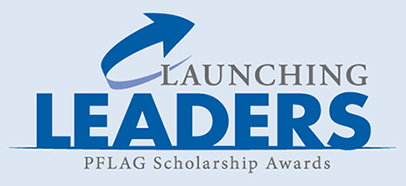Congratulations 2021 PFLAG SDC Scholarship Recipients!

Mary Wagner Memorial Scholarship: Elizabeth Granados Johnson
Elizabeth Granados Johnson (she/her/hers) is a twin who was born and raised in San Diego. She is a graduating senior at Otay Ranch High School, where she is the President of their Mock Trial team and an officer of Sociedad Académica Hispana. In the fall, she will be studying psychology and education at the University of California Santa Cruz. Throughout her career, she hopes to create a more inclusive and diverse education system that embraces people of all sexualities, gender identities, races, and cultures.
In 2020, my school district voted to “solve” 30 million dollars of debt by firing over 200 staff members. Consequently, more than 41,300 students would lose some of their most valuable resources. Upon hearing this news, I was exasperated. How could a school district whose motto was “Putting Students First” put students last with the decision they made?
A real solution was necessary, so I started the “Students Putting Students First” movement with a group of peers. We organized a walkout to give students their voices back. Eighteen schools from the district joined our efforts and we even gained the attention of local news stations. We prepared speeches about the harmful effects of the district’s “solution” and speeches that discussed various ways to resolve the district’s debt. I wish we were completely successful, but unfortunately, we were not. The district still followed through with the cuts, and the students suffered because of it. In light of these events, I knew there must have been another way to create a better district for all students, so I joined the Ethnic Studies NOW campaign.
As a campus representative for Ethnic Studies NOW I pushed to implement the course “Ethnic Studies.” It would provide education about all races, ethnicities, cultures, and nationalities. As a Mexican-American woman, my high school never taught me about my heritage or culture comprehensively. In fact, not one of my peers thoroughly learned about any culture other than American at school. All we learned about our backgrounds were the snippets that happened to appear in white history, nothing more. With over 90% of my peers being people of color, it was not only a surprise but a disappointment that there was no option to take the class. Fortunately, come the 2021-2022 academic year, students will have Ethnic Studies as a course option due to my relentless efforts.
A Mexican-American student planning to take the course told me that “Whitewashed history is not my history.” That statement alone reassures me that I am creating a valuable change. That student and countless others will finally know their history. Although I will not have the opportunity to take the class, I know my efforts are creating a prosperous generation. A generation of sympathetic, open-minded, and accepting individuals who will learn a history that doesn’t discriminate against their community.
My efforts will not stop there. Facing the consequences brought forth by my district’s debt “solution” while pushing them towards a better curriculum made me realize my calling. I know my purpose is to change the world for the better through my career in education.
Education is the most valuable tool someone can procure. It shapes each new generation and changes the course of the future. However, education is only advantageous when it is done correctly. With the immense hatred and discrimination seen across the nation, it is clear that there is an issue somewhere. The issue is the education system. Hate is not born, it is taught, and with the proper teaching, hate can be eliminated. As it is right now, the education system is not effective and does not ensure a positive future. In my career in education, I plan to change this. I strive to create a system that teaches acceptance and care instead of hate; A system that fosters the growth of schools and their students, not the mistreatment of them. Students should not have to worry about losing their resources or if their education is excluding entire communities. It is the job of educators and administrators to nurture their students’ needs and provide for them. My first steps were the walkout and implementing Ethnic Studies, but I am not satisfied with these local improvements. All schools in the United States deserve the resources they need. All schools in the United States deserve an inclusive curriculum. Each and every student has a right to an education that does not teach them to hate. The education system I plan to create will not fail students because if the education system fails them, they will fail us.
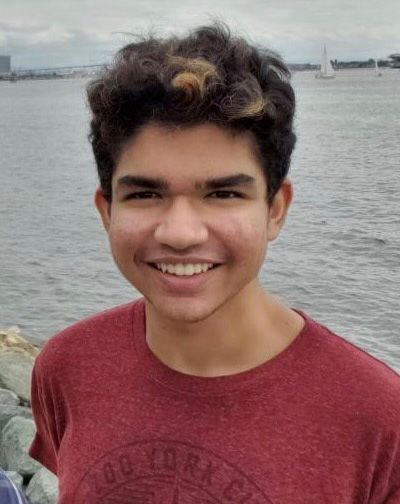
John Bessemer Memorial Scholarship: Hafeez Merali
My name is Hafeez Merali, and I’m an 18 year old senior at El Capitan High School! I love hanging out with my friends, playing video games, volunteering at my place of worship, and following politics and world events. One really important part of my life has been a language immersion program that I started through school, which taught me Spanish and Mandarin Chinese and gave me an appreciation for global cultures. In fact, I plan on studying international politics in university, and hope to eventually work for the State Department! As of now, I’m still undecided as to where I’m attending university, but I’m considering both UCLA and the University of Oxford. Regardless of my final choice, I’m extremely grateful to PFLAG San Diego for helping fund my college education.
Sounds strange, but it’s true! But to understand why you need to understand what Board Game Club was like pre-Covid. With its stress-free atmosphere, it had become an oasis of joy for many of our members during tough school weeks. It was a tight-knit community that came to play and laugh together. Importantly, it was also an inclusive and safe space, with almost half of us being part of the LGBTQ+ community. As Vice President, I was proud of the important place it had on campus.
But then the pandemic hit, suddenly and out of nowhere. And of the many, many, things that we lost, alongside sports, planned trips, and school itself, Board Game Club was last on our minds.
The first few months of the pandemic were spent in near isolation. We spent our time at home, figuring out new online school and coping with our new and changed world. There would be the occasional Zoom call with friends, but those took planning and were irregular and sporadic. Overall, it was a lonely time.
By the time the new school year started, I realized this was unsustainable. For the sake of our mental health, we needed to have better and consistent interactions with other people. Luckily, I had an idea.
I talked to my friend, who happened to be President of the Board Game Club, and he agreed. Quickly, we got to work. I scoured the internet searching for board games that we could play for free online. Some were better than others, but there were still a lot more than we were expecting: Risk, Monopoly, Mafia, Codenames… I also went and contacted as many of our old members as I could and found that interest was high. Like me, they too missed the positive social interaction that the club provided them with.
It took some trial and error, but in the end, we figured out how to make our virtual club. We set up a server on Discord and had meetings in the voice channels, trying out all sorts of virtual games. It may not have seemed like much, but it was leaps and bounds better than no interaction at all. Our members had a blast reconnecting and sharing the joy of playing games together again. We had found a way to bring some semblance of Board Game Club back into our lives.
Now, as I look to the future, I know I want to do so much more to make the world a better place. I’ve been lucky to be part of El Capitan’s Global Language and Leadership Program, which means I’ve been able to learn Spanish and Chinese, tools that I know will be helpful in my future career. The program has also gotten me interested in Political Science and International Affairs, areas where I know I could make a big impact.
I know that working in international policy, I’ll have opportunities to create lasting change at enormous scales. I’d be involved first-hand with international cooperation to combat climate change, advocacy for LGBTQ+ rights abroad, the administering of foreign aid, and the furthering of world peace. Of course, it would also include solving difficult challenges and making some tough decisions, but I feel that in doing so I could push the world in the right direction.
This past year has been challenging for all of us. But if anything, it’s taught us the resiliency of our communities, the strength of our relationships, and the things we truly value. I hope to get a strong college education and use what I learn to fight for positive change both in my community and in the world at large.
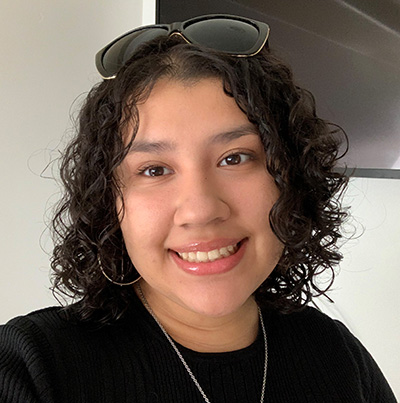
Rob Benson Memorial Scholarship: Aranzazu Salgado-Gutierrez
Aranzazu Salgado-Gutierrez is a current high school senior and plans to pursue a degree in Social Work at San Diego State University. Her passion has always been to help others and her most recent endeavor has been with First Gen Scholars. During the pandemic, she worked with other seniors in First Gen Scholars to create a student-led organization to help other seniors in the college application process. They created the First Gen Club and were able to help more than 100 seniors. This contributed to her passion because where she is from, there aren’t many resources for first-generation college students in her community, since 97% of the community are Latinx immigrants.
As a first-generation college student, I am not exposed to the same opportunities as the students who come from a line of college graduates. Southwest High is 96% LatinX, and many of our families live in poverty. In fact, many students at some point (myself included), had to commute from Tijuana, Mexico to cross the border to attend school in San Diego.
Looking at our low college application and enrollment numbers, it would be easy to assume that our school should be a hotspot for colleges to find amazing students, when in reality, most of the attention comes from army recruiters who want to earn a commission. It is not fair that wealthier schools in our district have college counselors to help them with the college admissions process. That is why I took advantage of applying to the First Gen Scholars program.
I first heard about the program from last year’s seniors who said they learned a lot from the program. The college application process is overwhelming, and I felt like I needed as much help as I could. Not only did this program help me with overall college apps and PIQ essays, they helped me see my true potential. I became sure about sharing my story and my struggles, and I believe that my story deserves to be heard so that other first-generation students could know that they are not alone.
During the pandemic, I worked with other seniors in First Gen Scholars to create a student-led organization to help other seniors in the college application process. We created the First Gen Club, and I was able to spread the word to others about great opportunities, such as workshops about college applications and scholarship information. My peers that have taken advantage of this club have had the same to say, just like I did with the opportunity I got. Before the First Gen Club, I’ve helped people with situation based problems which has made me feel happy in the past. However, being able to help others with a life changing decision about their future, which makes me feel euphoric.
After college, I plan to come back to the community that has helped me so much. I will come back and help those who come from backgrounds just like mine. In most cases, students from low income/first gen households aren’t told about the potential they have, and what they can strive to be.
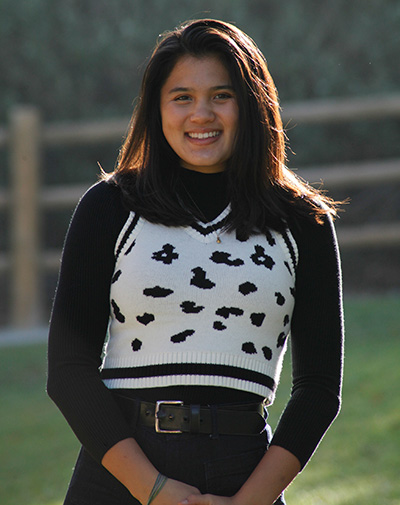
Stephen G. Bowersox Memorial Scholarship: Halle Schaffer
Halle Schaffer is a high school senior at San Dieguito Academy High School. She is the President of her Speech and Debate team, as well as the president and founder of the Carlsbad-Encinitas Leos club, a youth club in North County San Diego dedicated to community engagement. In her free time, she loves creative writing, tennis, hiking, playing music, reading, and researching current events. She will be majoring in political science on the Prelaw track at the University of Southern California.
In Judaism, one phrase gets tossed around quite a bit: Tikkun Olam, or repairing the world. The theory is that the purpose of the human condition comes with making the world a little bit better than when you entered it. As a kid at my reformed Judaism Temple, I would learn about this simple phrase, without really delving deep into its significance.
But today, this phrase influences not just the way I look at community service, but also the way that I see my purpose in the world.
My journey with community service began during my Bat Mitzvah when I volunteered at the soup kitchen to help the cause of homeless rehabilitation. I continued to volunteer whenever I could, putting on shows to raise funds for mental illness through our school’s theater department, becoming a youth judge at the San Diego courthouse, and judging speech and debate tournaments for children nationwide to continue to spread my own personal joy of knowledge to the younger generation.
But my investment in service truly began later in my high school experience, where I became inspired for community betterment after I participated in the MD4 Governor’s Student Speaker Contest, a high school student Speaker Contest discussing California’s Homeless crisis and the necessary steps that our state could take to stopping the issue at its roots. To my surprise, I won the first level of competition and would continue to move up in the ranks for the next six months.
That first level of competition stuck most prominently in my mind, not because of my achievement during it, but what happened afterward. After a quick word with each of the judges, I began talking with another woman in the room who had watched the ensuing competition take place. After speaking about Judaism and her profession as a security guard, she confided in me that the reason she attended the competition was that she herself was homeless, and my speech gave her hope about her dire future.
Her words stuck with me as I remembered this integral value of Tikkun Olam. Inspired, I collaborated with our local Encinitas Lions the following summer to create what would become the Encinitas-Carlsbad Leos, a youth club dedicated to serving San Diego’s community through service projects and community fundraising events. Despite the hurdles we had to leap over due to the Covid-19 pandemic, I helped organize and facilitate numerous service projects throughout the county for our Leos’ participation: creating pen pal programs for retirement homes and first responders, organizing Covid-19 friendly beach cleanups, and setting up contactless drives for refugee children across the border.
This program was also an opportunity for me to continue my own personal goals of providing San Diego’s homeless community with basic human necessities. I organized a partnership with Hope for San Diego, a local nonprofit organization dedicated to homeless reintegration, and set up a few fundraising nights to help raise funds for care package items. Using the items we purchased, the Leos and I put together bundles of essential items for those living on the streets, which were then all donated to our partner.
Today, I see community service as an act of Tikkun Olam, utilizing smaller-scale projects and events to add to larger-scale causes. While these events may have only been a small contribution to the much larger issue of California Homelessness and other causes way outside my control, I know that for a select few, it gave them a glimpse of hope for a better future, just like that woman at my competition. Even if I can do that for just one person, I know that my own community contribution has been worth it.
My dedication towards this club has only fostered within me a new passion to change the world. In pursuing political science with a Pre-Law degree, I hope to go into Civil Law, where I can then begin to systematically change the United States’ structure at its roots: honoring the rights of the LGBTQ+ community, vying for environmental reform, and hopefully starting the beginnings of genuine healthcare reform in this country. By implementing policy at the local, state, and national level, I hope to begin to create a world that truly looks after its citizenry, not one who brushes the peoples’ rights under the rug. I am so appreciative of my upbringing and this experience with the Leos, because it’s made me recognize the impact one person can have on the world.
And I truly believe that it is through these bigger and bigger steps towards community betterment that I can one day get to a point where I can truly begin to fulfill my ultimate goal of Tikkun Olam.
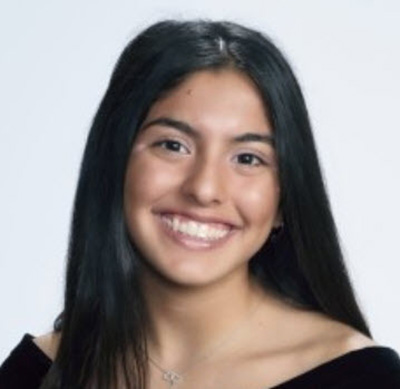
Raytheon STEM Scholarship: Sofia Alcocer
Sofia Alcocer (she/her) is a graduating senior and a part of the Class of 2021 at Eastlake High School in Chula Vista. She is going to be attending the University of California Berkeley as an incoming freshman. She is majoring in Biology at Berkeley and plans on pursuing a career within the medical field. She is very passionate about STEM, science specifically, and is excited to continue to work hard to inspire and help others around her.
I had volunteered over 300 hours for the Red Cross and planned over five blood drives, but nothing could have prepared me for a pandemic.
It was time for our final blood drive of the year. As the Blood Chair of the Red Cross Club, I had started preparing months in advance and already had over 60 donors signed up ready to donate. I had large publicity for the event through social media and marketed the blood drive across the school campus. I had already been in contact with the biomedical account manager at Red Cross and scheduled the theater and nurses to arrive when my blood drive was scheduled. High school blood drives contribute 20% of the total units of blood collected in San Diego County, and so I knew how important this blood drive was to our community. However, one week before the event was scheduled, the COVID pandemic hit America, and my school and the whole community were shut down.
My school was completely closed, and no one was allowed on campus. That meant I could not host the blood drive in the theater anymore, and my whole plan crumbled. I knew that this blood drive was greatly needed, especially because of the pandemic and ongoing medical issues individuals still faced within my community. I needed to find a solution.
I am a member of Eastlake Church, a local Christian church within my community. The Eastlake Church campus has multiple large theaters. So I thought one of those theaters would be perfect to host my blood drive. I contacted my pastor and the events coordinator at my church and told them about my situation and how I needed an event space for my critical blood drive. My church was kind enough to allow me to host the blood drive for free within one of their theaters.
I was able to connect the biomedical account manager to the events coordinator at my church and scheduled the nurses, volunteers, and the new theater for my new blood drive. We were even allowed to get the blood drive on the regional Red Cross website to recruit more donors. With all-new COVID procedures in place, I was capable of hosting the blood drive and not canceling it.
During the blood drive I organized, we collected over 50 units of blood, which saved over 150 lives. This blood went straight to hospitals all over southern California and greatly benefited the community. Through this blood drive, I created a lasting partnership between the Red Cross and Eastlake Church, and I have hosted over ten more blood drives since then on the church campus.
I was excited about making a lasting impact within my community, and I wanted to go the extra mile to accomplish my goal of holding the blood drive for those in need. I even was told about many local citizens that received a second chance at life because of the work and effort I put in to ensure I continued hosting blood drives.
Because of my efforts, I was nominated for the Youth Good Samaritan Award at the 2020 Red Cross Real Heroes event. This event recognizes heroes (adult and youth) in San Diego and Imperial County. There I was inspired even more to continue my work into college and beyond. I realized how many opportunities there are to serve others within the Red Cross if you are willing to put in the effort. I will continue encouraging my peers to show leadership and follow through with my actions as Vice President of the Red Cross Club on my school campus and continue to create lasting impacts for those around me that are less fortunate than myself.
With the privilege of just being alive and healthy comes the responsibility of serving and alleviating the suffering of others surrounding me. That is why I will always serve those around me, and create events and programs that assist individuals who are less fortunate than myself, whether it be in my school, work place, or any group I am a part of.
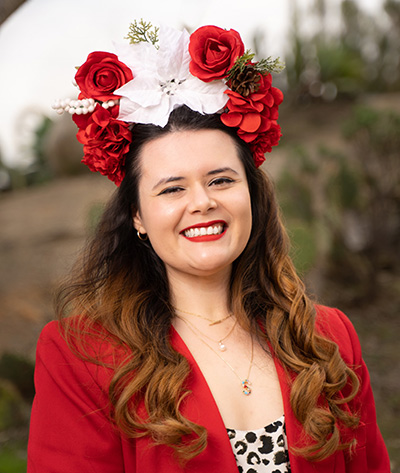
Kendall Family Memorial Scholarship: Sinai Cota
Sinai Cota is the defiant daughter of Mexican immigrants, a first generation college student and Queer Chicana poet who grew in Barrio Logan. She has roots extending into Tijuana, Mexico, where her family currently resides. She is currently an educator and doctoral student at UC San Diego and plans to center her research on underrepresented students in doctoral programs highlighting and celebrating their experiences and contributions to higher education. Sinai is also author of: Pink Poems Tan Thoughts, available on Amazon, and donates 100% of book profits to the nonprofit UrbanLife to support scholarships for BIPOC student leaders from immigrant and refugee backgrounds. To connect with Sinai you can follow her on IG @PinkChicanaPoet.
I am a fierce queer Latina educator, the daughter of defiant immigrants, and a first generation college student. I am passionate about education, storytelling and giving back to my community. As a child, school was always my safe haven especially when I became homeless. My teachers, neighbors and classmates also became my family. As a result of my upbringing, I want to encourage more educators to create nurturing environments where all students can embrace all their identities and thrive.
I have chosen a career as an educator because I recognize my gifts, passions and inherent responsibilities to make the world a better place for these specific groups. I recognize the importance of my presence in these spaces where decisions are being made (regarding fee waivers, entrance exams, and other college requirements) that may create further barriers for students from marginalized communities. This is also why I volunteer regularly with nonprofits and engage in conversations about college and justice oriented topics with people in my community. I host free scholarship, leadership, social justice and study abroad workshops for high school and college students with the nonprofits UrbanLife, Barrio Logan College Institute and with the San Diego LGBTQ Latinx Coalition.
In January 2020, I was fortunate enough to create a scholarship in memory of my late mentor: Nancy Brusch, with UrbanLife. I honor her life and legacy by cheering on and supporting student leaders from immigrant and refugee backgrounds with this scholarship. Through this process, I also felt inspired to write and self-published a poetry book in July 2020 called: Pink Poems Tan Thoughts. I donate 100% of book profits to Urban Life as a means of providing financial access to low-income students from City Heights (San Diego, CA).
In January of 2021, I became a doctoral student in the school of education at UC San Diego. I have been frustrated in my role at the university and know that there is much work to be done, but unfortunately I need the title to help me make those much needed changes. One of my goals while I am enrolled in the program is to uplift and create a sense-of-belonging for students who identify as: LGBTQIA+, BIPOC, immigrants, refugees and first generation college students. I want to highlight their stories with my research, dissertation, publications and workshops to hopefully motivate more students (like us) to pursue a higher education because WE belong here.
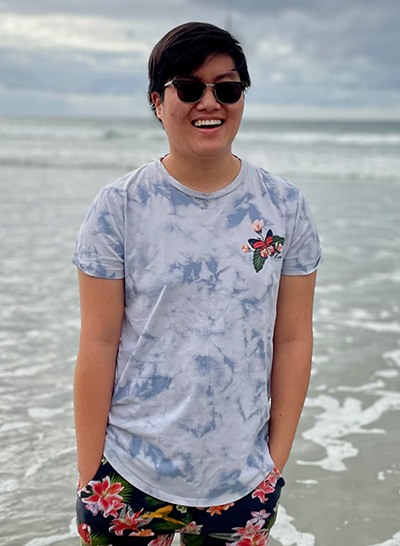
Qualcomm Merit/STEM Scholarship: Danny Tran Ho
Danny Tran Ho is hoping to gain a degree in Computer Science and apply the knowledge to the healthcare field. He is passionate about helping others in need and educating others on equality, love and empathy. He hopes to one day change the world, little by little!
In the past year, I have virtually taught arts and music to at-risk youths for the Vietnamese Association of Illinois during the pandemic. Every Wednesday, I conducted one-hour art and music classes. These classes provided creative outlets, improved social skills, and understanding of unique perspectives as positive differences within my minority community. My experience with the classes has taught me valuable skills that I will carry on in order to change the world. It is often assumed that changing the world could mean possibly creating a new medication or better technology, but the world cannot solely rely on physical inventions. Instead, I want to change the world by teaching younger kids the importance of being inclusive, open, and positive in order to help their fellow peers. This can happen through possible educational programs or workshops on the importance of different identities such as gender identity, learning to be empathetic to one another, or resolving disputes together. The actions I take to educate the younger kids will change the world.
I was able to give these kids creative outlets during the Covid-19 pandemic. Initially, the students were expecting either a lecture or an extensive project to be handed to them during these classes but I approached them with an outgoing attitude. The first day, I became familiar with them by playing ice breakers such as “one-word stories” or “name that actor”. Then during the next few days, I carefully started to introduce easy activities such as making silly faces in the camera or making funny loud noises. Expectedly, some kids were hesitant to do these activities. I assured them that they did not have to participate in those specific activities. As a result, I designed lessons that had them either write or draw stories. I gave them small prompts or pictures and offered them to create short stories with what was given. They started to develop confidence and were able to enjoy the classes. I was able to learn how to create a positive atmosphere for others and I want to continue that beyond the classroom. I will change the world by building hope for my community and form solutions with others to overcome challenges.
In addition to the art activities, I was able to improve their social skills. First, I asked the students specific questions about their day or their different interests. When the kids blatantly respond or seem uninterested, I always try including my own interests or stories about my life. I established an equal status between us and they became comfortable around me, they realized that they could be open to me. This helped them to share their common interests and empowered one another. Throughout the next couple of classes, the students would display enthusiasm and participate in multiple activities. I was able to create an open and positive atmosphere. I want to teach others the importance of being open to different perspectives and not be afraid to share their own. This will create an equal opportunity for all to listen to each other and possibly gain new perspectives or relationships.
They had their creative outlets and social skills improved but most importantly, I taught them how to empathize and understand the different backgrounds of people that they will meet in the future. In the beginning, the students were visibly confused about why I asked for their pronouns. For every lesson, I integrated subjects on diversity and social justice. For example, if we discussed a certain androgynous character, I would emphasize the importance of pronouns and to respect the person’s preference. I shared my story of how I felt alienated and uncomfortable while people questioned my gender identity and how it made me feel worse when they assumed my gender. I tried to teach them to never assume but instead, they could use “they/them” pronouns or directly ask the person for clarification. Over the next few classes, they would take their time to try and understand the importance of respecting different identities and backgrounds. I can change the world by promoting openness and positivity but most importantly, I want others to be able to understand one another’s personal stories. I want others to be able to connect by empathizing and listening so that they could work better together. This will make the world a more inclusive and happier place to be.
I believe creating positive and open mindsets will change the world for the better. We become more empathetic to each other when we have conflicting ideas or beliefs. I hope different groups will be able to listen to each other better and not engage in violence with one another. By teaching kids empathy and tolerance, I want to create a positive impact in my community that will be passed down.
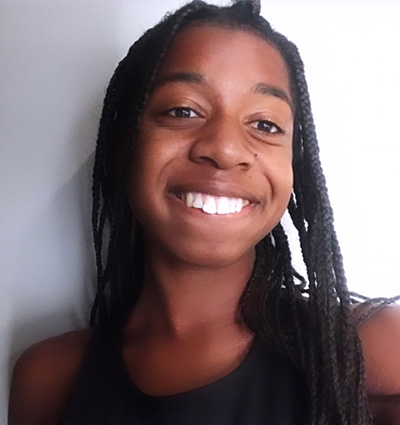
Qualcomm Merit/STEM Scholarship: Taylor Vassar
Taylor Vassar (she/her) is a 19 year old, second-year statistics major at UCLA. She loves distance running and competes for the club track team, bullet journaling, braiding hair, playing piano, going on long drives, planning/organizing, and talking and learning more about mental health. She is also very passionate about racial and social justice for marginalized communities; she interns for UCLA’s LGBTQ+ Center and run @clothing4blacklives on Instagram. She is very grateful for this scholarship and is excited to continue her work!
During the resurgence of the Black Lives Matter movement this past summer, I found myself at the intersection of anxiety and fear — but most of all, passion. Marching down Interstate 8 with hundreds of other protestors, we all shared a common motive.
I am a resident of La Mesa — home to the June 2020 riots, fires, protests and general chaos that was broadcasted all over San Diego news stations. I live on the same street as the events that took place and could hear sirens, yelling, megaphones and more at any given time during those couple of intense days. My mix of feelings included the fear of being targeted for a hate crime, previous racial trauma, and desire to start a change. However, even with my struggling mental health and chaotic environment, I came up with a unique idea to help show support for the black community that has made waves throughout San Diego County, all by the help of my own and other people’s closets. I had a previous hobby of selling my old clothes to vendors in exchange for money; this would become the inspiration of my new project. My initial idea was to sell a few of my old clothing items on an Instagram account and donate the money to black-owned businesses and communities in need. Although there was more doubt than confidence in my head as I clicked the “create account” button on the app, that single moment unlocked months’ worth of new opportunities, meeting beautiful people, and the local change I had created.
Just a few days after my initial social media posts, my best friend gave me some of her old clothes to sell and my uncle, a graphic designer, created a logo for the Instagram (@clothing4blacklives); these updates made me realize how powerful of a platform I created. As my friends and family spread word of the account, people then messaged me that wanted to buy items and donate their own clothes. Just after the first week, I had raised $128 for The Okra Project, a group that provides food to black trans people. From then on, I had looked for black-owned businesses and organizations that were in need of financial help and donated to them on a weekly basis.
Just as I got into a regular pattern of posting, organizing, and pricing the clothes, a huge opportunity presented itself one short month after Clothing 4 Black Lives was born. I would soon have televised interviews on both the KUSI and CBS 8 news stations. Although I was an anxious wreck the morning of each respective interview, the influx of buyers, clothing donors, and general support I received was monumental compared to my initial nervousness. My grassroots activism had now extended to total strangers across the country who were in no hesitation to ship me their clothing donations as well.
Even with my life struggles of last year, all the time I spent driving around San Diego to manually deliver orders, folding, sanitizing, organizing, and packaging clothes, creating visuals, looking for organizations in need and making lifelong connections with people that were once strangers to me was more than worth it. Since June of 2020, I have raised about $2,600 and counting for over thirty black-owned or pro-BLM businesses, groups, and communities of color. The money from clothes has been donated anywhere from black farmer unions outside of California that grow vegetables for those experiencing food insecurity, to the black LGBTQ+ nonprofit groups that find and create housing for homeless queer people of color and even toward the Black Period Project, an organization that buys period products for those who mensturate and cannot afford it themselves. Most recently I have raised money for the grassroots group Stop Asian Hate in support of unity among people of color.
As a queer black woman, it took me several years to realize that my blackness and sexuality could intersect. There was a lack of black queer representation in my life until college, and I felt as if there were hardly any LGBTQ+ people in the black community and vice-versa until I broadened my perspective. I always emphasize on the Instagram account that the clothing sold is for anyone, regardless of their gender, identity or fashion style. By stating that it is a queer-owned organization, my hope is that those identifying with the LGBTQ+ community will find a safe space in my work and will not hold the fear that they will be judged if they do not dress according to the typical masculine and feminine clothing styles. This has been a success as well — among buyers are those that express their sexuality through clothing, and I am more than honored to have been a part of their journey in confidence and self-expression.
The past few months has not only been a journey of helping others, but also of self-discovery. I am amazed at the positive change I have created through San Diego and am excited to continue my activism for as long as possible. As a current statistics major, my career goal is to use my skills with data for the benefit of others –something I like to call, “using numbers for good” Mental health, ethnic minority, and the LGBTQ+ community are just some of the areas in which I am interested in contributing to through my future work. Even if I am behind the scenes analyzing data, for example, of how surges in racial violence towards a certain group affects the mental health of teenagers of the targeted demographic, I am willing to take on the challenge. Despite the destruction of the diseases that both COVID-19 and racial injustice has caused, creating a bit of positivity has been my main highlight of what has been a rather challenging past year. For as long as I can keep giving back to the community through my selfless efforts, I hope to inspire other individuals to create a beneficial change as well.
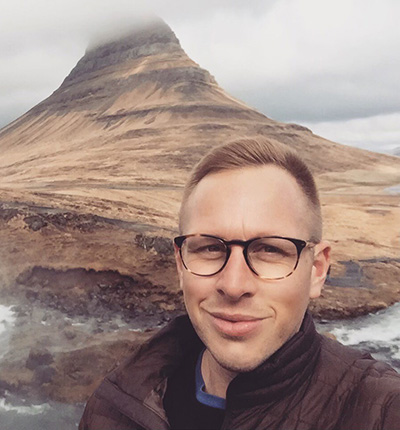
M. Lynne Austin Memorial Scholarship: Sean Compas
Sean Compas is a fourth year doctoral student at the University of California San Diego in the Department of Literature and Cultural Studies. His work specifically focuses on the intersections of queer theory, disability studies, and television and film. He is particularly interested in the future of queer and disabled bodies. Prior to his doctoral studies, Sean spent several years living in Washington, D.C. He worked in the field of international development and public health with professional efforts focused on HIV and AIDS programming to reduce HIV/STI infections and stigma surrounding HIV, among key populations (e.g., men who have sex with men (MSM), female sex workers (FSW), people who inject drugs (PWID), and adolescent girls and young women (AGYW)) in Western, Eastern, and Sub-Saharan Africa, and Southeast Asia. Fluent in American Sign Language (ASL), Sean holds a B.A. in Political Science and Critical Gender Studies from the University of California San Diego and a A.M. in Cultural Studies from Dartmouth College. He is also an alum of the University of Virginia’s Institute for Shipboard Education, Semester at Sea program.
“It’s always open season on gay kids,” so writes Eve Kosofsky Sedgwick in How to Bring Your Kids Up Gay (1991). From physical or verbal harassment or abuse, to the increased likelihood of self-harm, and the medical pathologization of lesbian, gay, and bisexual children, LGB youth contemplate suicide and other forms of self-harm at almost three times the rate of their heterosexual peers. In fact, suicide among LGB adolescents is the second leading cause of death among young people ages 10-24. As a Ph.D. student and teaching assistant at the University of California San Diego, I am forever faced with repudiating the very seeds of homophobia that come to exist in students in their elementary, middle, and high school years. As Sedgwick comments, “teachers in the primary and secondary levels of public [and private] schools –who are subject to being fired…for providing any intimation that homosexual desires, identities, cultures, adults, children, or adolescents have a right to expression or existence,” (Sedgwick, 1991) often falls on faculty and graduate students at the university level to provide generative spaces, particularly within the humanities, to not only acknowledge the range and diversity in sexual orientation, but to encourage these very expressions to flourish – that they have the right to exist.
As such, when it comes to the treatment, dignity, respect, equity, and making intellectual space for lesbian, gay, and bisexual, (and of course, transgender) students, the scholarly and affective labor provided by those of us in academia is often just as important, if not more important, than the research we do (although they are not necessarily separate).
Now in my fourth year at UCSD, I have had the distinct pleasure, but also circuitous path, of arriving where I am today, teaching in the field of race, ethnicity, disability, and of course, LGBT studies, all while pursuing my own graduate study in Queer Theory, Disability Studies, and Television. For nearly eight years I worked in Washington, D.C., five of those years advancing LGBT issues in medical education at the Association of American Medical Colleges (AAMC), to ensure our future doctors are providing the care, treatment, and support for sexual minorities and closing the gap in health outcomes for LGBT patients. I spent an additional nearly three years working in public health and international development specifically on programs meant to diminish HIV/AIDS stigma while also reducing transmission for men-who-have-sex-with-men (MSM) (in addition to other vulnerable populations) throughout Africa as part of the Population Council. Having worked in such important fields and in the shadows of many incredible giants, I knew I wanted to move up and continue doing this transformative work, which required me to pursue a doctoral degree.
Although I initially struggled making the leap from practice (programming and fieldwork at the AAMC and the Population Council) to theory (sitting in a classroom at UC San Diego), I was quickly reminded of the importance that education has on the mind. It was only when I stumbled across a poignant quote by former anti-apartheid revolutionary, political leader, and South African President, Nelson Mandela, during one of my classes that I quickly realized the positive difference I am making in my community within the classroom. The quote read, “Education is the most powerful weapon that you can use to change the world.” It was in this moment that I no longer saw myself as a Ph.D. student conducting my own research and developing my own expertise, but an opportunity to use my research and experiences in working on LGBT issues in Washington, D.C., as a part of my curriculum and teaching pedagogy.
As someone who recalls very vividly what it was like growing up being tormented, teased, and tortured for being different – gay – I use my platform as an teacher, mentor, and survivor, to encourage and applaud those coming to terms with their sexual orientation, in a world that has and continues to view us as anomalies and degenerates. In my classroom I openly encourage the very existence of queers. And in this radical act, I am reminded of the many times numerous teachers gave room to homophobic rhetoric during my primary, middle, and high school years, and wishing someone, anyone, even just one person would have made me feel safe; made me feel that I belonged and was worthy of respect and life. I never want any of my students to ever feel this way: to feel diminished; to feel dead.
In centering texts by queer scholars – voices that have historically been silenced and pushed to the penumbra of society – are meant to elicit a sense of belonging and futurity. I want my students to be part of an unapologetically visible lesbian, gay, bisexual community, in a world that would much rather render them invisible. When my students walk away feeling more comfortable or certain about who they are as budding queers, in the same way that my hetero students understand their role in perpetuating systematic homophobic violence against lesbian, gay, and bisexual youth, that is a marvelous thing to bear witness to. The intellectual growth that happens in the classroom that students take with them out into the world, challenging and making spaces for people deemed unworthy of life, is one of the most important reasons I teach. I have come to realize that my graduate work and education at UC San Diego is not theoretical as I had once lamented, it is in fact, very practical. And for all the emotionally exhaustive and financially thankless days of being a Ph.D. student, if I can continue to chip away at the assiduous open season on LGB students, it will have all been worth it. It is this work I do year after year in the Dimensions of Culture program at UC San Diego, that has and continues to a make a positive difference in not just the UCSD community, but beyond. And for that, I am so very proud of my students.
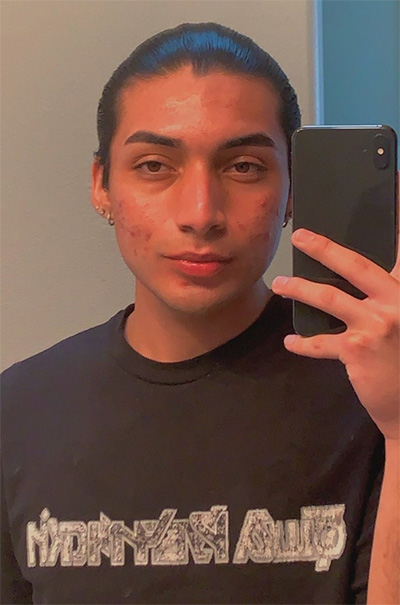
Daniel J. Ferbal Memorial Scholarship: Derrick Herrera
Derrick Herrera is a First generation, Indigenous college student. He is a second year student at San Diego State University studying Political Science & American Studies, striving to achieve a Juris Doctorate and practice Tribal Law.
In the past year, there has been so much difficulty within the world. There are so many areas in which one can make an impact upon the prominence of Black Lives Matter and COVID-19. However, with the restrictions I had due to COVID-19, I decided to stick close to home and provide academic support and resources for my community.
I am an Indigenous student from the Barona Band of Mission Indians and the Rincon Band of Luiseño Indians. Statistically speaking, Indigenous youth have the lowest graduation rates out of any other ethnic group. It is devastating to be even knowing that this is the case in the 21st century. When I came upon this statistic for the first time my freshman year I knew that I didn’t want to encourage an increase in the statistic. I made it my priority to graduate, and during the four years of high school, I began to develop a need to help people. I started tutoring peers at my school, where I offered services for free as I felt that everyone needs to have the opportunity to receive help regardless of their financial status. I ranged from tutoring all subjects to tutoring for standardized testing.
In the year 2020, I was able to continue my tutoring services at the beginning of the year. However, once COVID-19 hit I had to put a halt on my tutoring as I was rather hesitant about social interactions. Although things still aren’t getting better, I was able to adapt and tutored via Zoom and Facetime for friends and family friends. Over the summer, I was able to move to one of the reservations I was from and it changed my life. I met so many people that are the same age as me and that we’re struggling to stay motivated to graduate. I found this a great opportunity to improve my skills as well as others and I made the effort to help more family members and my Indigenous community. It may seem rather simple to tutor, but within an Indigenous community, it is very different. Most of us come from homes of instability and substance abuse, where education isn’t necessarily the top priority. Trauma that Indigenous people, like myself, greatly hinders the youth from prioritizing their education. I feel that although I can do only so much in regards to emotional support, I can provide fellow Indigenous youth insight and help them come to a realization that their education can become an outlet and it can change your life.
I intend to continue my education in the field of law by going to law school to study Federal Indian Law. I want to change so much for Indian Country as there are many flaws when it comes to protecting Indigenous people. I hope to have the ability to create legislation that’ll improve the judicial system to not put Indigenous people at a deficit, especially within school systems. In the future, education for Native Americans will be prominent and reformed for the sake of generations to come. The power of change is within the hands of the youth.
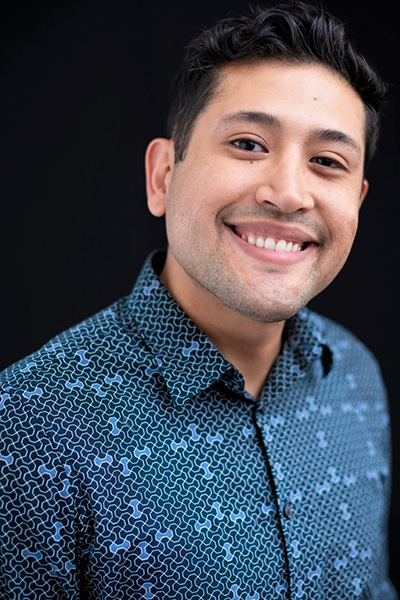
Gary A. Marcus Scholarship for the Fine and Applied Arts: Jose Mendez Entrekin
Jose Mendez Entrekin will be transferring this Fall as a Theatre major from MiraCosta College to either San Francisco State or UC Berkeley and plans to take on a second major, Film/Cinema. He grew up in SouthEast San Diego before moving to Vista in the third grade and he graduated from Vista High. He has always had a passion for storytelling and the performing arts. His ultimate goal is to be a professional actor, producer, and director in television and film while engaging in social justice work as a community activist and organizer. His hope is that his work as a film and television professional will open more doors for the LGBTQIA+ and BIPOC communities.
In the past year, I worked with community leaders and MiraCosta’s Associated Student Government to create the first-ever LGBTQIA+ Safe Space Training at MiraCosta College. This training called on the leadership of activists like Tiki Inacay, founder of the T-Spot, the Regional Director of PFLAG’s for the North County San Diego chapter, Annette Ottone, MiraCosta’s Associated Student Government, faculty, and staff. I had the opportunity to share my coming out story, speaking on the intersectionality of my identity as a queer person of color who is also undocumented. Over 50 participants attended, including campus faculty, staff, administrators, and other student leaders in this full-day event. I have ongoingly advocated for equity groups on our campus and in the community by creating partnerships with the Undocumented & Mixed Status community, the LGBTQIA+ community, and the International community.
As President of MiraCosta’s Associated Student Government, I led the Student Senate to allocate over $30k in relief funds to support the student body at large at the beginning of the pandemic. These funds were used to provide students with mobile-hotspots for wi-fi, supplied emergency relief funds, and helped to pay for DACA application renewals. One of my most memorable moments came from sharing my story during the Undocumented Student Week of Action. On my way to class right before the pandemic, I was stopped by a fellow student on campus. He wanted to thank me for sharing my story and sharing our school’s legal services for Undocumented/Mixed status students. He mentioned that he had gone in for a consultation and had discovered that he had been eligible to adjust his immigration status. He continued to share that he was now going to school full-time, providing support for his family and that it wouldn’t have happened without the encouragement he received from my advocacy efforts. I was moved to tears hearing how much his life had changed and the new sense of direction in life he had developed in such a short amount of time. Before my year as ASG President, I had no idea the level of impact I could have on my community. Afterward, I learned that I would leave behind a legacy of social justice work that far extended beyond my expectations. No longer limited by my status, I learned the power of community and the importance of taking myself on as a leader regardless of the situation or circumstances.
This year, I shared my leadership story in-spite of my Undocumented status for the League of California Community Colleges Webinar during the Undocumented Student Week of Action, where over three-hundred people attended. This panel was the most successful webinar that took place that week. Consequently, I was later approached by Telemundo 52 Los Angeles and spoke on a segment that aired internationally. The piece shared resources for going to college regardless of a person’s immigration status. This virtual panel has received over seven-thousand views since November 2020. In March 2021, I spoke on a panel for MiraCosta’s Undocu-Ally Training for the third consecutive year. I also led a yoga workshop for Undocu-Week of Action for my school.
As a member of MiraCosta’s Associated Student Government and a member of the Student Senate for California Community Colleges (SSCCC), I sit on the Guided Pathways Advisory Committee, where I impact the community locally and at the state level. I have participated with the SSCCC for the last six months, volunteering my time to advocate for students across the state.
In the past six months, I have volunteered my time to lead multiple virtual yoga classes for the non-profit Immigrants Rising staff and Catalyst Fellows, a group of undocumented students across the state. I have guided students through breathing techniques to support others in practicing self-care and managing stress. I also led yoga for military families through the non-profit Hearts of Valor.
Furthermore, I have volunteered with other community organizations like the non-profit Unitarian Universalist Refugee and Immigrant Services and Education (UURISE), MiraCosta’s Undocumented People Rising in Solidarity & Empowerment (UPRISE) program, Immigrants Rising, Equality California, the City of Oceanside, and many more. I volunteered by conducting research, translating, community building and outreach, emergency safety-planning for immigrants, assisting with peer networking events, organizing and supporting entrepreneurship training. I also assisted these organizations by staffing fundraisers and galas, participating in community restoration projects, coordinating and staffing events to honor cultural wealth, and informing students about community and campus resources. Just before the pandemic, I also volunteered with Landmark Worldwide as a production team supervisor for personal development seminars for the community.
What I will do to change the world for the better is to continue developing myself as a professional to better support my community and all those around me. I intend to continue studying theater and film to prepare me in telling stories that inspire new possibilities for others while sharing untold narratives of people of color, immigrants, and the LGBT+ community. Ultimately, my goal is to work as a professional actor, director, and producer. I hope to learn how to further advocate for the LGBT+ and BIPOC communities, empowering diverse voices and stories often marginalized in film and television. I will continue to volunteer with non-profits that support the LGBTQIA+ and Undocumented communities to provide free yoga online for these groups. This academic year, I have led free yoga for the non-profit Immigrants Rising, UPRISE of MiraCosta, and will be instructing a yoga class for Trans Chorus LA. One of my biggest goals to change the world for the better is to create a theater and production company that employs LGBTQIA+ people and BIPOC communities. An enormous commitment of mine is to increase diverse representation in film, television, and theater. By supporting diversity in the arts, our communities will create more opportunities for generations to come.
I am currently building a yoga company that provides free or low-cost yoga to underserved communities. I want to create a yoga company with yoga gear, equipment, and clothing, whose profits provide resources to minority groups and other underserved communities. I hope to continue to bring yoga to under-served communities while exposing people to a more diverse representation of yoga.
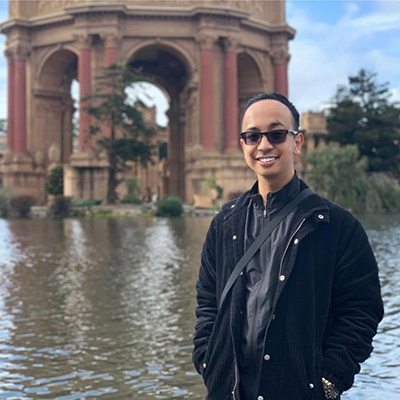
Bill Hanson Community Scholarship: Aaron Bautista
Aaron Bautista (he/him) is currently a student at San Diego Mesa College with the goal of obtaining an Associate of Science degree. Once that degree is in hand, he will be an osteopathic medical student at Pacific Northwest University of Health Sciences. As an undergraduate at University of California, Los Angeles, he studied Human Biology and Society, B.A., as a Regents Scholar and as an Alumni Scholar. After graduating in 2017, he took on various roles: volunteering at an ER, interning for a biotechnology company, and scribing at both a low-income community health clinic and private urology practice, among others. Outside of school, Aaron loves traveling. In September 2019, he and five of his closest friends spontaneously went to Peru, where they trekked for five days to Machu Picchu. Prior to that, Aaron went on a week-long road trip in Iceland!
In early July, 2021, Aaron received the wonderful news that he was accepted to Western University of Health Sciences College of Osteopathic Medicine (WesternU-COMP). He had been on the waiting list for this school since September 2020. This was a top pick over Pacific Northwest University of Health Sciences, where he was originally planning to attend. Now he will be much closer to home and family.
As I pulled into David’s driveway, I somewhat nervously shuffled through potential conversation topics in my head. I was a new driver for Road to Recovery, which provides free rides to cancer patients, and David was my first passenger. Like most Road to Recovery patients, David was elderly, underserved, and spoke little English. My initial nervousness quickly dissipated, as he began to joke as soon as I helped him into my car, saying, “Your car looks old but not as old as me!”
David turned the radio to a Spanish station and asked me to sing along to help him relax before chemo. At one point, he explained that his wife couldn’t obtain a driver’s license because she was undocumented, and as a result, he had often missed his chemo appointments. Ultimately, his oncologist had referred him to Road to Recovery.
I had heard similar stories about my parents’ lives in the Philippines, where they would trek miles to the nearest hospital in search of a provider. There, suffering was the norm. Growing up with these stories drew me to a career where healthcare and social justice intertwined.
I started volunteering in the ER at Sharp Chula Vista Medical Center in 2017 with the intention of observing how medical professionals handle all kinds of delicate situations. When I was younger, I was drawn to the idea of becoming a nurse. But when I began scribing at La Maestra Community Health Centers two years later, I realized I would find more professional and personal fulfillment as a doctor. It became clear to me that a physician’s medical knowledge and training would enable me to address the most advanced cases, especially for the disadvantaged.
Most patients at La Maestra are Arabic or Chaldean-speaking. They often also struggle with reconciling their religious beliefs with Western medicine. One patient, Rafa, despondently confessed to us, “I’m pregnant.” This was soon confirmed by an in-office pregnancy test. It was clear that transgressing her family’s religious beliefs terrified her more than being pregnant. Her osteopathic physician, Dr. Mansour, whom I worked with at the time, recommended that Rafa consult an OBGYN, despite her family’s attitude about an unmarried Muslim woman seeking gynecological intervention. Seeing her trepidation, Dr. Mansour facilitated this difficult situation between Rafa and her parents, and he assured them that he would be present for the entire treatment. Witnessing this and other such pivotal interactions made me feel more and more strongly about becoming a physician. Every day, Dr. Mansour tactfully executed a precarious balancing act: he was efficient yet patient, steadfast yet gentle. I discovered that a doctor’s role encompassed all that I valued about nursing while providing me with a wider breadth of knowledge, greater scope of practice, and more dynamic opportunities for problem-solving.
My resolve to become an osteopathic physician was confirmed after gaining additional insights into the day-to-day responsibilities of DOs and their transformative impact on patients. For instance, when a patient named Jose was diagnosed with sciatica, he was also facing serious problems with his insurance. After Dr. Mansour explained the diagnosis and conducted spinal manipulation therapy, he spent significant time talking back and forth with Jose’s insurance company to ensure that Jose would be covered. Dr. Mansour’s leadership, advocacy, and holistic approach showed me the rewarding role that DOs play in making distressing situations more manageable for their patients. I realized the true importance of accounting for social factors not only for treating physical ailments but also for counseling patients on unsafe housing conditions and unhealthy eating habits, among many other things. As a DO physician, I hope to support and provide care to people in marginalized communities like Jose, Rafa, and my own relatives — all those who have felt powerless while trying to navigate unknown medical jargon and confusing bureaucracy.
On a personal note, I also expect that I will actively work with those in the LGBTQ+ community. In July 2019, at a San Francisco Pride event, I marched alongside an openly queer group of medical professionals. While speaking to one physician who discussed some of her experiences delivering culturally sensitive care to an LGBTQ+ HIV+ patient, I felt particularly inspired to do the same. As a gay man, I understand the importance of creating a welcoming environment, as societal phobias and pressures can often deter LGBTQ+ people from seeking care. Becoming a doctor would afford me to focus on numerous underserved populations that I care deeply about, and I believe I can positively influence the general state of healthcare for such minority groups.
As a doctor, although I won’t be driving my patients to their medical treatments, I will steer patients like David along their roads to recovery. I will continue advocating for patients’ rights and for greater accessibility for underserved populations. I want my patients to experience a more holistic form of healthcare: one that combines medical expertise with social justice. As a conscientious osteopathic physician, I strongly believe that I can contribute to creating a world where suffering is the exception, not the norm.
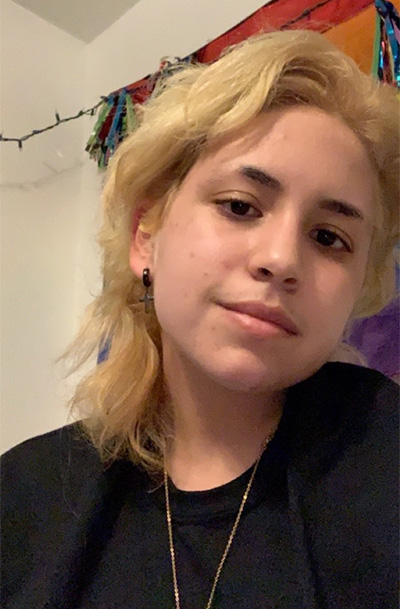
Bill Hanson Community Scholarship : Jay Schmidt
Jay Schmidt (he/they) is a seventeen year old nonbinary artist with a love for life and a passion for activism. Though he has struggled with mental illness, identity issues, and rejection, he’s proven to be resilient in the face of adversity. They love creating art, watching anime, and spending time listening to music (especially Lady Gaga) with their younger brother. Jay is graduating as an honor student from Hilltop High School with accolades from Key Club, FLAGS and more. Community college has helped support their dream of building activist coalitions at UC Berkeley, which he will be pursuing this fall through the Oakland Changemakers program.
Though I have done my fair share of community service through my school’s Key Club, and various other programs, I’m probably most proud of the role I took in planning SYHC (San Ysidro Health Center) Teen Clinic’s Friendsgiving event in 2020.
After the COVID-19 crisis hit our community, the clinic and its programs were forced to go remote. Faced with unprecedented circumstances and a new virtual system to adjust to, our interns, mentors, and supervisors were pushed to find creative alternatives to the usual in-person shifts and activities we were accustomed to. My passion for the clinic and its mission motivated me to step up and use my technological experience to guide the transition into the virtual environment. Initially, I started taking the lead in more group projects, offering my skills in photo and video editing to create engaging content that would be shared on the clinic’s social media profiles. But as quarantine dragged on from spring to fall, we realized that our annual Friendsgiving health fair was not going to be possible if we wanted to be socially distanced. Program supervisors proposed a safe drive-through event, but there was a sense of unanimous disappointment at the idea of reducing a fun, interactive, open event to a single-car spectacle, especially since a large portion of our target audience (preteens, teens and young adults) lack their own means of transportation. SYHC is situated in a low-income Latine (alternative to Latino/Latinx) area, and serves hard-to-reach communities like undocumented immigrants and LGBTQ individuals- populations who would especially benefit from our confidential care- and I was disheartened at the idea of losing this opportunity to educate. So, I spoke up in the Zoom meeting to voice these concerns, and suggested replacing our usual booths, where guests can meander around the space and explore the different activities, with breakout rooms that guests could join, each room staffed by a PHA (Peer Health Advocate) hosting an informative game or presentation. Through this event, we were able to reach a large body of young people and spread important information about sexual health, mental health, LGBTQ+ topics, healthy relationships, and the resources/services available at the clinic.
In the future, I want to continue to create positive change in my community through my membership in the PSL (Party for Socialism and Liberation) and participation in other LGBTQ+ organizations like The Center and PUMP. My candidacy in the PSL allows me to learn more about community organizing & base building, and gives me the tools to help aid existing structures of mutual aid and collective care being built in organizations like We All Got SD and Food Not Bombs. I am also using the skills in social media marketing and content creation I developed as a PHA to spread awareness about important causes and direct others in the activist community to redistribute funds to those in need. I may be young, but I have high aspirations of changing the world through activism and organizing, and I’m dedicated to furthering my education in order to support those goals.
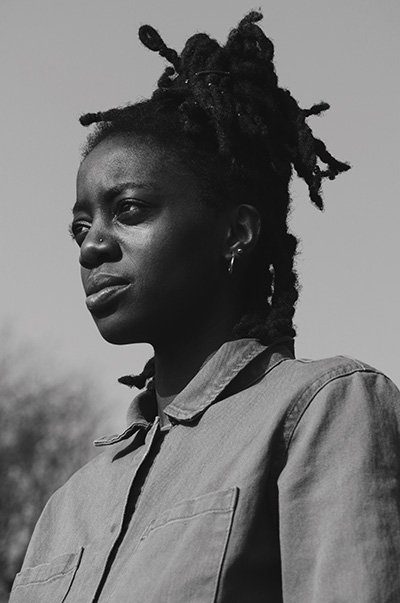
Howard Finnecy/Maureen Steiner Merit Scholarship: kelechi agwuncha
kelechi agwuncha is a Chicago & San Diego based visual artist. They are currently an MFA in Visual Arts students at University of California, San Diego and working on films about black individuals’ relationship to water. Her work often harmonizes video, film, and photography to documents the movements and cultural experiences of black athletes.
This past year I donated three photograph prints to the Workers Fund San Diego Silent Auction. The Workers Fund San Diego was a collective of San Diego-based queer artists and community organizers of color who recognized the failures of institutions to provide for the needs of the people during the start of the COVID-19 pandemic. The fund was created with the intention to provide immediate cash relief to service workers in our community. I look forward to continuing community work through mentoring youth artists in the San Diego & Tijuana teaching program, “Homegrown Youth Collaborative” which is set to begin this summer.
I am a filmmaker and current graduate student pursuing a Master of Fine Arts in Visual Arts at University of California, San Diego. I want to employ public spaces as a means to make my work more accessible to residents of their respective communities. I want to screen my experimental work in the local spaces in which I live, making the films more broadly accessible through free, public, outdoor screenings. For example, I’d like to screen & host discussions surrounding filmmaking through San Diego teaching program, “Homegrown Youth Collaborative.” an initiative that fosters collaboration and experimental learning for youth in Tijuana, Mexico & San Diego. Through the “Homegrown Youth Collaborative.” in which I serve as a mentor, I am also interested in teaching VJing or video jockeying, a visual art glitch technique that changes the speed, colors, and transitions of my videos in the moment. This re-imagines and keeps from the footage alive. Another space I would like to continue work with is “In ℅: Black women” (in care of black women), a Chicago collective in my hometown that I am part of, which regenerates vacant lots into sites and economies of care. I look to fill the gap of film programming and outdoor projections in both of my communities through this initiative. I would like to foster a partnership with students in my UCSD Visual Arts graduate program to also provide mentorship for youth in Homegrown Youth Collaborative .
My graduate school thesis film entitled, “heart” is an experimental documentary that will observe the lives of three black people who engage with aquatic spaces. The film specifically looks at Naomy Grand’Pierre — Haiti’s second swimmer and first-ever woman swimmer to compete in the Olympics — as she supports the Haitian National Swim Team. It then follows Garry Maxwell’s journey as he teaches black individuals how to surf in San Diego. The film finally threads me learning how to swim. My objective is to explore black life forms’ current relation and past to aquatic space, emphasizing it as a blue obstacle that counters freedom and survival.
As a former athlete and current filmmaker, I use film as an artistic expression of my physicality. It is my way to commune with the natural world and a reminder of my ability to play with the pace and rhythm of life. I use video to enable a reconstructive flight that disrupts the European ontology of sports and the ways in which they are regularly filmed. I edit athletes’ continuous movements to render them disorienting, through quick cuts and long takes that combine old footage and new footage. By contrasting harsh and tender gestures, my films explore the body’s impermanence. My art practice is self-reflexive and fantastical. It explores the possibilities of liberated bodies and liberated spaces, and is informed by artists like Shirley Clarke, Apichatpong Weerasethakul, and Samuel Fosso.

